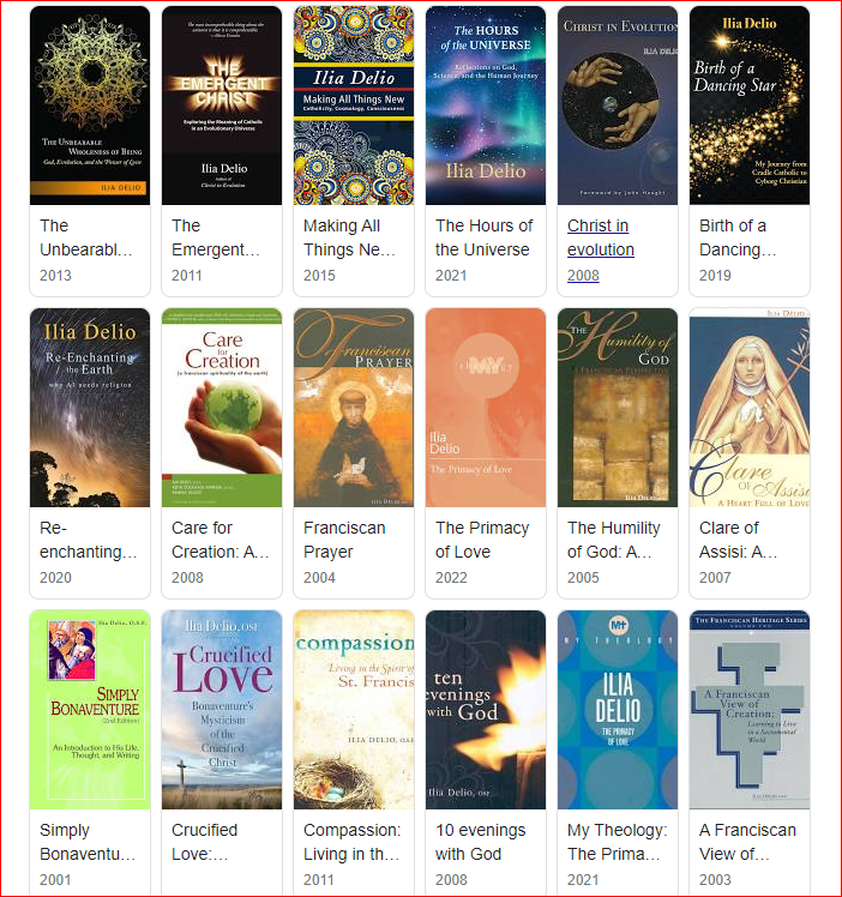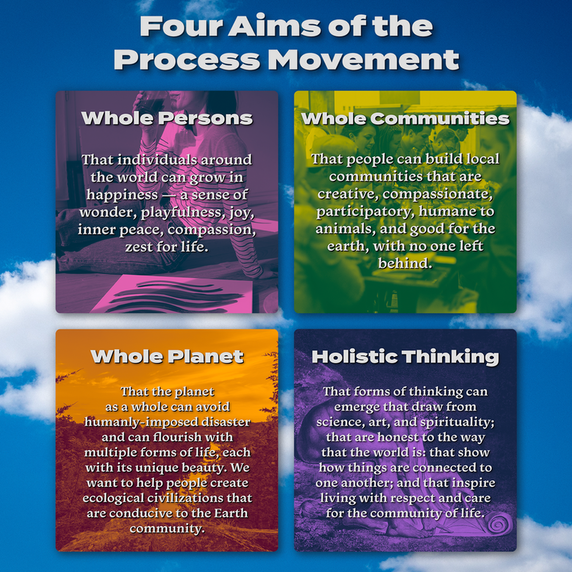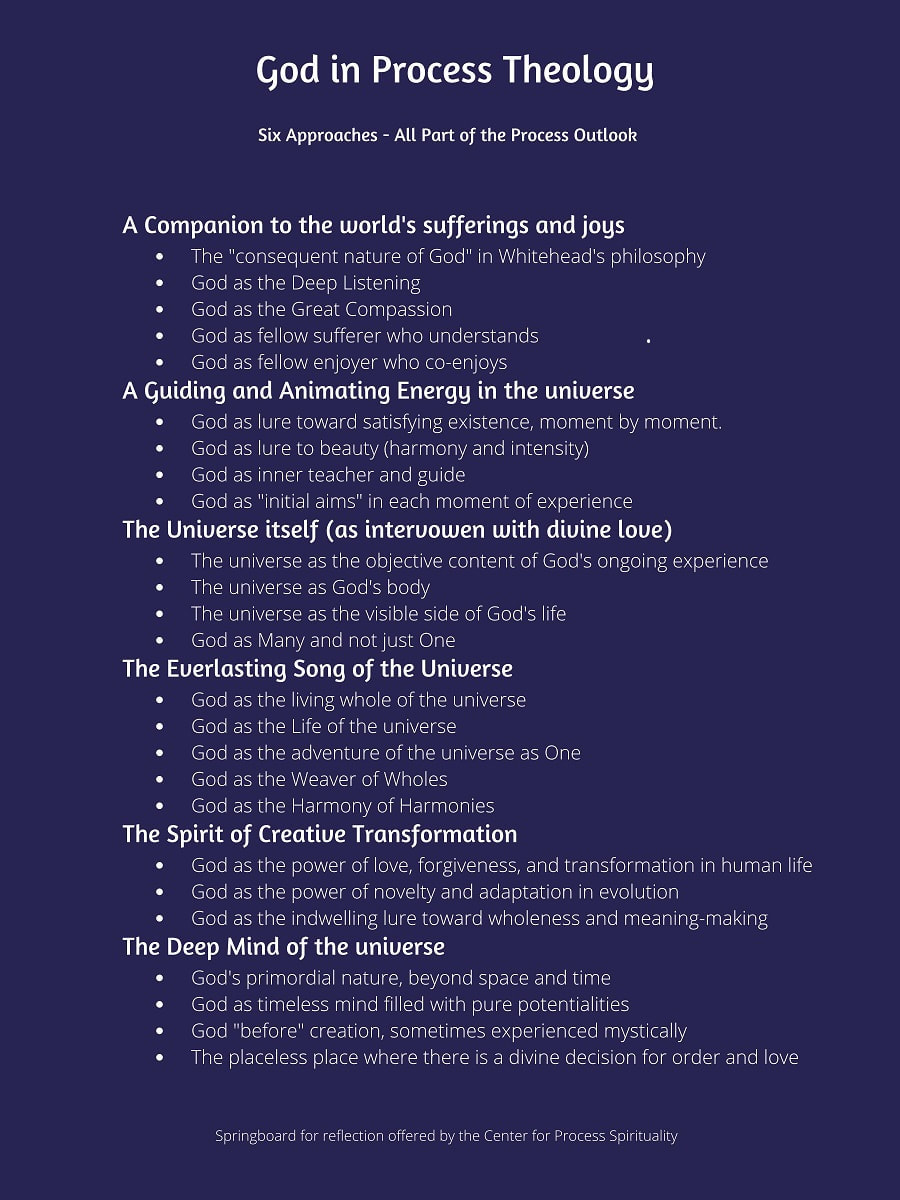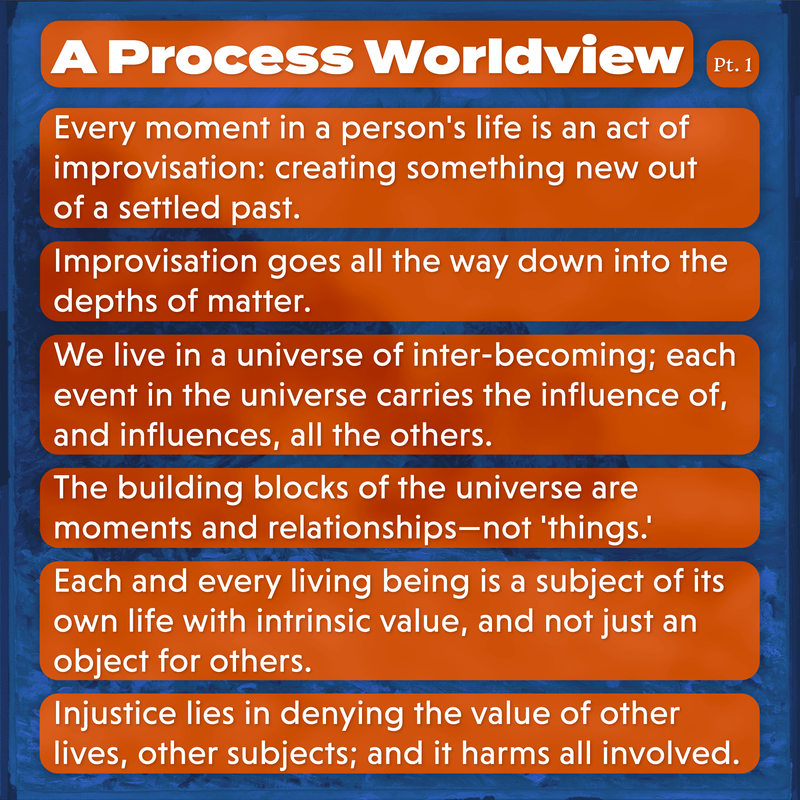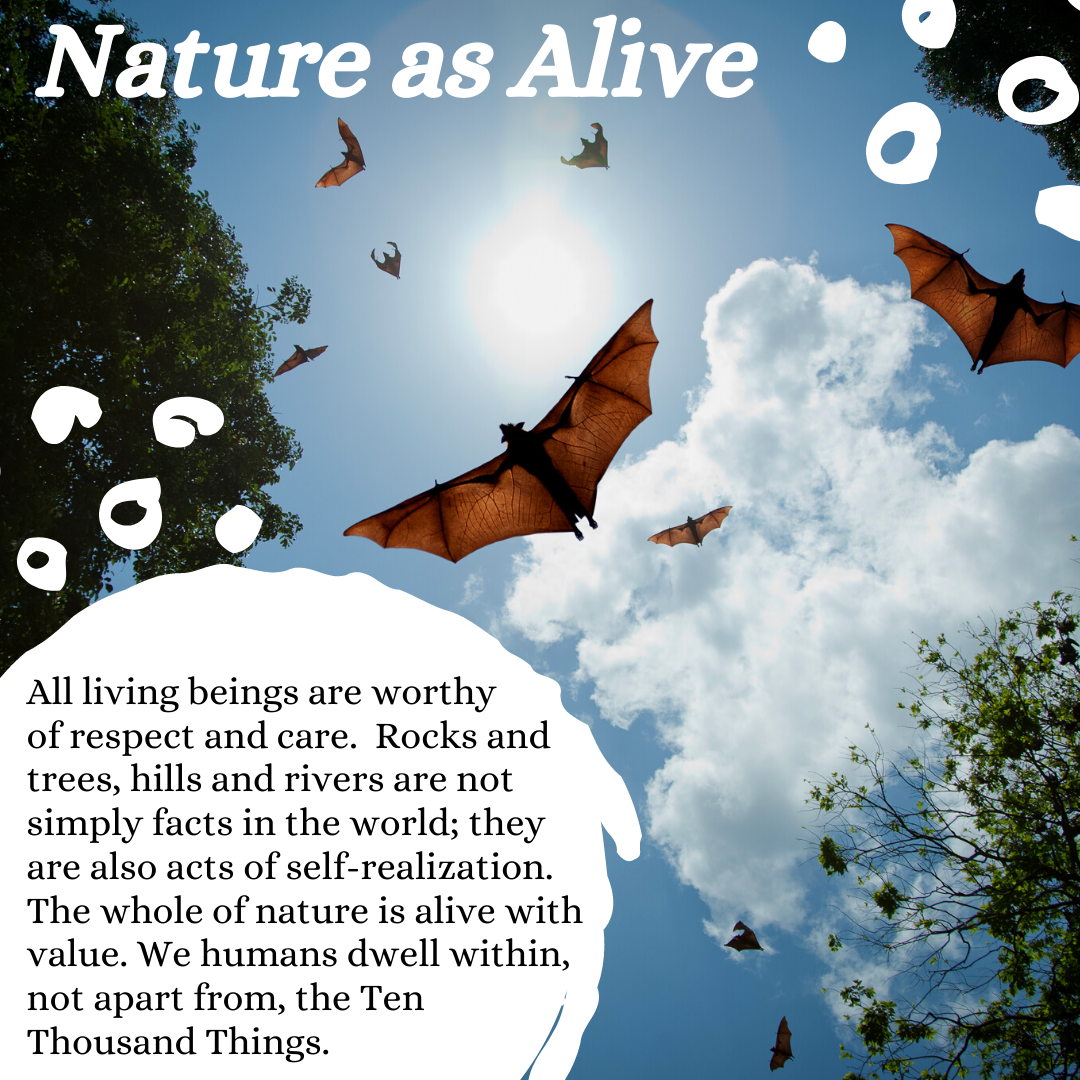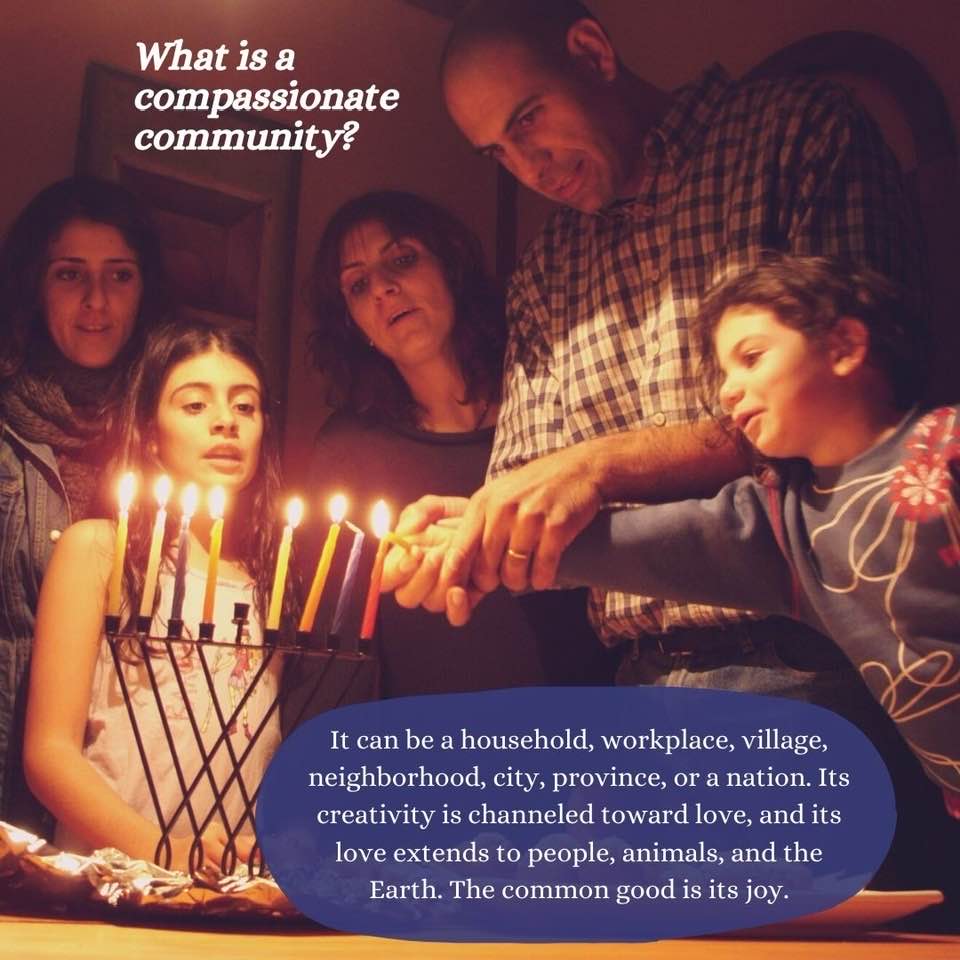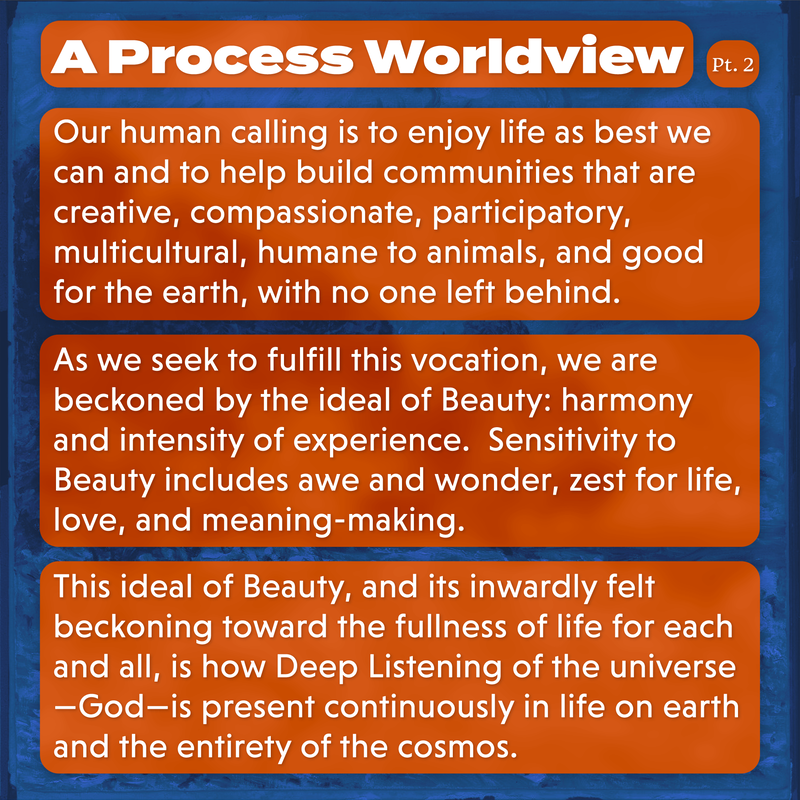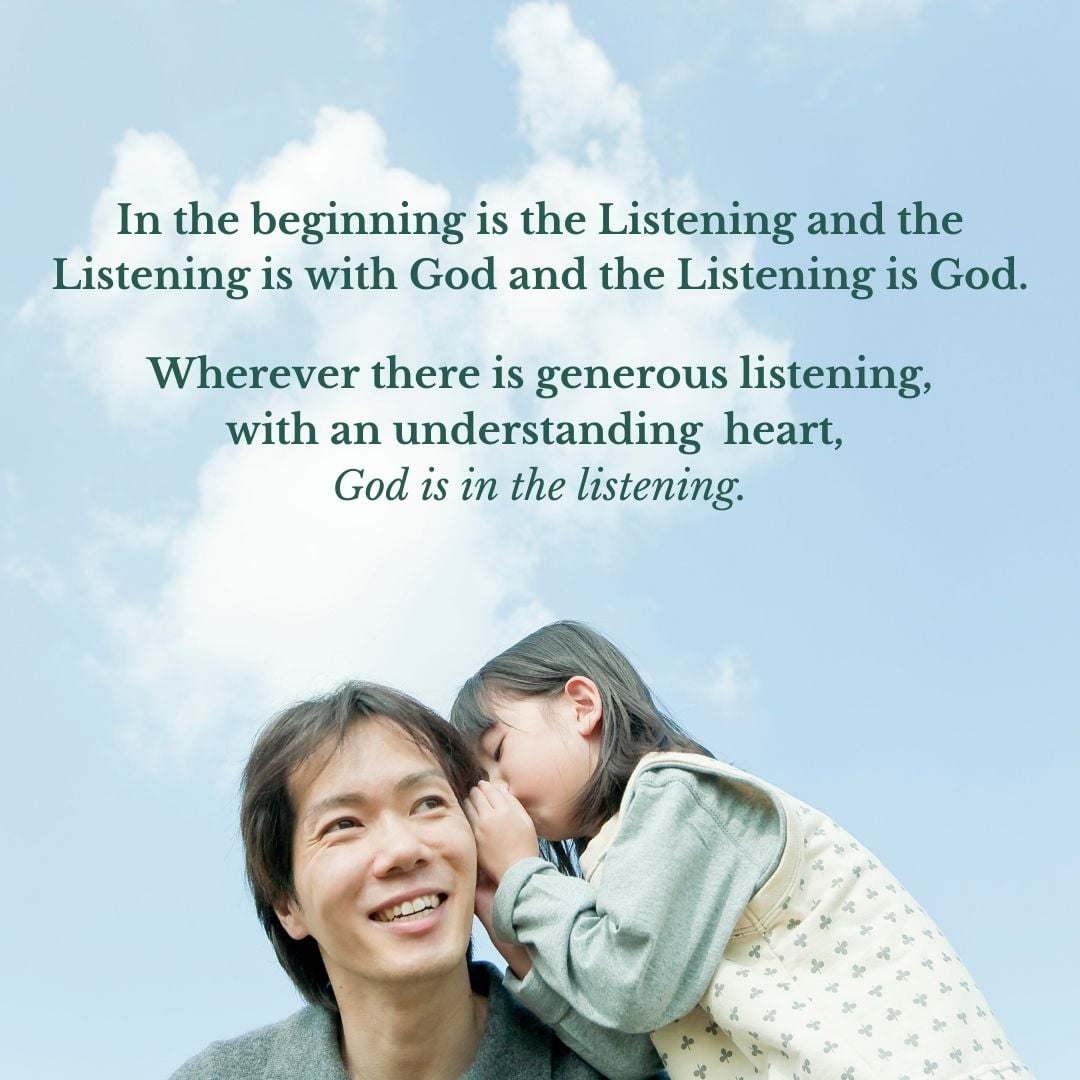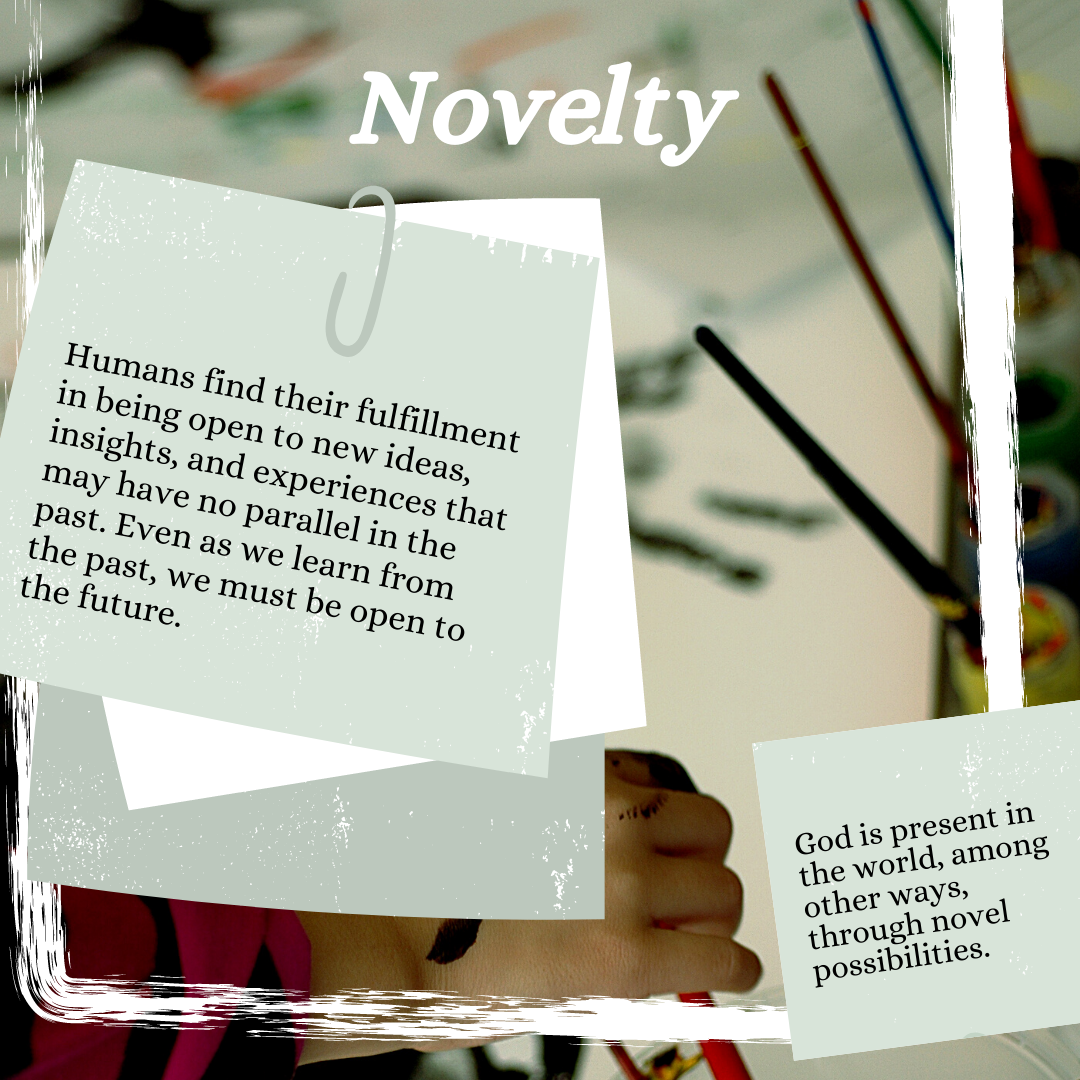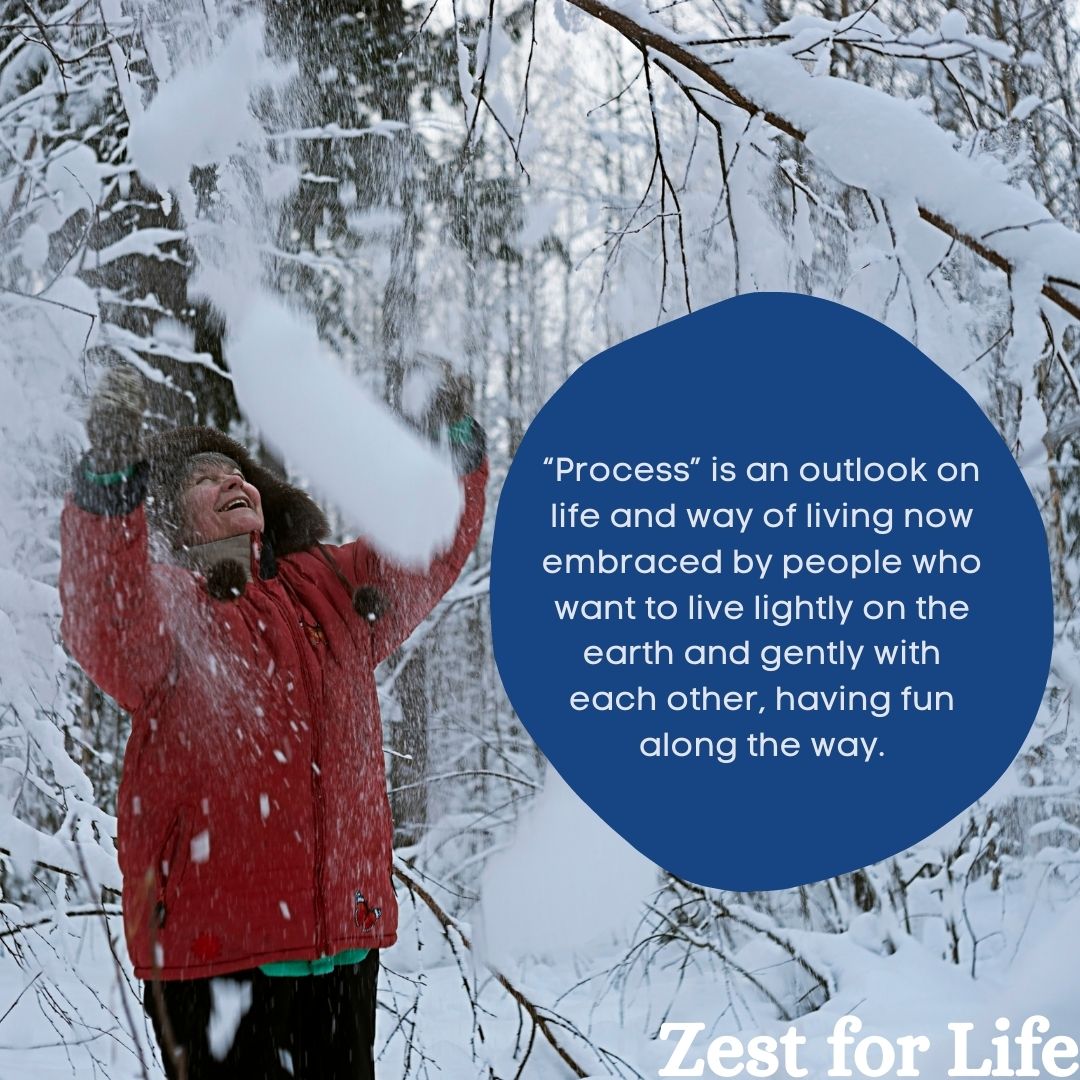- Home
- Process Worldview
- Community
- Art and Music
- Whitehead and Process Thinking
- Podcasts
- Spirituality
- Ecological Civilization
- Education
- Contact
- Social Justice
- Science
- Animals
- Sacred Poems
- Whitehead Videos
- Index of All Titles
- Practicing Process Thought
- Process Spirituality: A Spiritual Alphabet
- Recent Posts
One of the most influential process theologians in the world today is the Franciscan sister Ilia Delio. She is deeply influenced by Teilhard de Chardin and by A.N. Whitehead, mixing them together. Delio holds the Josephine C. Connelly Endowed Chair in Theology at Villanova University, and is the author of twenty books, many of them award-winning.
This page is a potpourri of materials: on Teilhard, Delio, and Whitehead-influenced process theology: excerpts from Delio's writings, videos, and snapshots of a Whiteheadian point of view. Its purpose is to introduce Whiteheadian process thinkers to her work, hoping they (you) will want to learn more; and also to introduce Teilhardian process thinkers to a few ideas in the Whiteheadian tradition. Both are very much part of the process-relational movement.
If you want to learn more about the process movement, please visit the website of the Cobb Institute for Process and Practice. And if you want to learn more about the religious significance of Teilhard and Delio's interpretation of him, see The Center for Christogenesis.
- Jay McDaniel
One of the most influential process theologians in the world today is the Franciscan sister Ilia Delio. She is deeply influenced by Teilhard de Chardin and by A.N. Whitehead, mixing them together. Delio holds the Josephine C. Connelly Endowed Chair in Theology at Villanova University, and is the author of twenty books, many of them award-winning.
This page is a potpourri of materials: on Teilhard, Delio, and Whitehead-influenced process theology: excerpts from Delio's writings, videos, and snapshots of a Whiteheadian point of view. Its purpose is to introduce Whiteheadian process thinkers to her work, hoping they (you) will want to learn more; and also to introduce Teilhardian process thinkers to a few ideas in the Whiteheadian tradition. Both are very much part of the process-relational movement.
If you want to learn more about the process movement, please visit the website of the Cobb Institute for Process and Practice. And if you want to learn more about the religious significance of Teilhard and Delio's interpretation of him, see The Center for Christogenesis.
- Jay McDaniel
Ilia Delio
Process Theologian in the Teilhardian Tradition
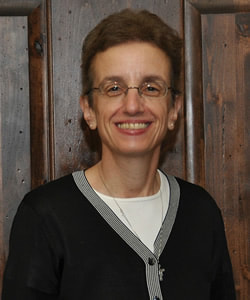
Ilia Delio, OSF, PhD is a Franciscan Sister of Washington, DC and American theologian specializing in the area of science and religion, with interests in evolution, physics and neuroscience and the import of these for theology. Ilia currently holds the Josephine C. Connelly Endowed Chair in Theology at Villanova University, and is the author of twenty books including Care for Creation (coauthored with Keith Warner and Pamela Woods) which won two Catholic Press Book Awards in 2009, first place for social concerns and second place in spirituality. Her book The Emergent Christ won a third place Catholic Press Book Award in 2011 for the area of Science and Religion. Her recent books include The Unbearable Wholeness of Being: God, Evolution and the Power of Love (Orbis, 2013), which received the 2014 Silver Nautilus Book Award and a third place Catholic Press Association Award for Faith and Science. Ilia holds two honorary doctorates, one from St. Francis University in 2015, and one from Sacred Heart University in 2020.
some of her books
God is the Whole of every whole
If the new cosmos is indeed a love story then we can no longer tell this story as if divinity and humanity are opposed to each other. It is not merely evolution of Homo Sapiens who, at advanced levels of consciousness express a need for religious myth and ritual; there is something much more fundamental going on in the universe. ….The very existence of the cosmos points to one who is not cosmos but whose existence renders the cosmos its existence. This is God the name above every other name because it is the name of the whole. God is the whole of every whole.
*
Religion belongs fundamentally to the cosmos, not to the human person alone. There is no cosmos without God and no God without cosmos. The divine is never alone or by itself because it has no “self”; it is a dimension of the Whole.
*
Creation, therefore, is not so much a past event as a present becoming that is oriented toward new being up ahead. While the old God-world relationship meant two distinct realities of God and world, the new cosmotheandrism means that God and world belong to the same whole; they are mutually related without being identical. God does not exist apart from creation, as if God lives in a place called heaven and watches over another place called earth. Nor is creation the amusement of a lonely deity. Rather, creation is integral to the very nature of God as love. God is eternally committed to creation, or, as Karl Rahner wrote, "the fate of God is in and with the world."
*
We are wholes within wholes all the way back to the Big Bang. This wholeness of Big Bang being, theologically, speaks to us of the unbridled wholeness of love that we name God. Love at the heart of being empowers life toward more being and more life; God is the energy of wholeness and the irresistible lure to greater wholeness. God is the integral whole that attracts every whole toward greater wholeness.
- Ilia Delio, The Unbearable Wholeness of Being
*
Religion belongs fundamentally to the cosmos, not to the human person alone. There is no cosmos without God and no God without cosmos. The divine is never alone or by itself because it has no “self”; it is a dimension of the Whole.
*
Creation, therefore, is not so much a past event as a present becoming that is oriented toward new being up ahead. While the old God-world relationship meant two distinct realities of God and world, the new cosmotheandrism means that God and world belong to the same whole; they are mutually related without being identical. God does not exist apart from creation, as if God lives in a place called heaven and watches over another place called earth. Nor is creation the amusement of a lonely deity. Rather, creation is integral to the very nature of God as love. God is eternally committed to creation, or, as Karl Rahner wrote, "the fate of God is in and with the world."
*
We are wholes within wholes all the way back to the Big Bang. This wholeness of Big Bang being, theologically, speaks to us of the unbridled wholeness of love that we name God. Love at the heart of being empowers life toward more being and more life; God is the energy of wholeness and the irresistible lure to greater wholeness. God is the integral whole that attracts every whole toward greater wholeness.
- Ilia Delio, The Unbearable Wholeness of Being
Love Energy
If we can begin to change our understanding of a God-world relationship, a deeply relational and unfolding process of divine-created life, then we might begin to reawaken a new zest for religion in our age, not as an institutional set of rules but as a new divine love energy deep within the ongoing dynamism of creativity, novelty and the spacetime-mattering that is the unfolding future. Open and relational theism open up new windows onto the cathedral of the universe.
- Ilia Delio
- Ilia Delio
Unfinished Beings in
an Unfinished Universe
Discovering the inner universe can help us appreciate that we are not fixed beings in a finite universe but unfinished beings in an unfinished universe. There is something at the heart of nature that renders nature perpetually restless in its longing for wholeness. Awakening and attending to this inner presence we name as God means coming to grips with the deeper truth of nature. It is not a mindless machine for human power. Rather, there is a deep soulfulness to nature that longs to reveal itself on a new level of consciousness and a new unity in love. Nature presses onward through the dead shells of life to become something new.
Ilia Delio, A Hunger for Wholeness, A: Soul, Space, and Transcendence
Reflection: Ilia Delio's idea rings true to those of us in process community. Nature is not something that already exists in completed form. It is a process, a journey, carrying with it a spirit of restlessness and longing. There is more to Nature today than there was yesterday; there will be more tomorrow than there was today, because tomorrow will include today's events. These new events do not simply arise mechanistically. At every moment and at every level, there is a hunger for wholeness.
Here wholeness mean harmony and intensity of experience or richness of experience. Given this view, those of us influenced by the philosophy of Alfred North Whitehead can find meaning in the idea that Nature longs for wholeness at two levels: finite and infinite. We speak of the fundamental units of actuality, small or large, visible or invisible, as momentary subjects of experience, filled with feelings and yearning, aiming at harmonious intensity, at satisfaction, in the moment at hand, at richness of experience. And we speak of the very heart of the universe, God, as likewise aiming at richness of experience through a loving reception of each new event as it happens, absorbing it into the ongoing and everlasting divine heart with tender care.
- Jay McDaniel
Here wholeness mean harmony and intensity of experience or richness of experience. Given this view, those of us influenced by the philosophy of Alfred North Whitehead can find meaning in the idea that Nature longs for wholeness at two levels: finite and infinite. We speak of the fundamental units of actuality, small or large, visible or invisible, as momentary subjects of experience, filled with feelings and yearning, aiming at harmonious intensity, at satisfaction, in the moment at hand, at richness of experience. And we speak of the very heart of the universe, God, as likewise aiming at richness of experience through a loving reception of each new event as it happens, absorbing it into the ongoing and everlasting divine heart with tender care.
- Jay McDaniel
Wholeness as Becoming
Part of Something More
How do our individual and communal stories shape our lives in the larger order of things? What holds us together despite our differences? We need a larger story that can include diversity and difference, and in which our local stories can thrive.
Every whole must eventually give way to something more than itself. This has led me to wonder if death is not finality but liminality; finite life is released from its limits to become part of something that is more than itself, a new whole of cosmotheandric life, a new relatedness with God and cosmos that we name the risen Christ.
In this unfinished universe commitment and fidelity hold life together. This means that no matter what happens, you belong to me and I belong to you. Together we make a whole that is more than each of our selves and, if we are open to other wholes, then we can evolve into something more whole and life giving. In the inner freedom to be for another, we can become something new.
Ilia Delio, The Unbearable Wholeness of Being: God, Evolution, and the Power of Love.
Every whole must eventually give way to something more than itself. This has led me to wonder if death is not finality but liminality; finite life is released from its limits to become part of something that is more than itself, a new whole of cosmotheandric life, a new relatedness with God and cosmos that we name the risen Christ.
In this unfinished universe commitment and fidelity hold life together. This means that no matter what happens, you belong to me and I belong to you. Together we make a whole that is more than each of our selves and, if we are open to other wholes, then we can evolve into something more whole and life giving. In the inner freedom to be for another, we can become something new.
Ilia Delio, The Unbearable Wholeness of Being: God, Evolution, and the Power of Love.
Teilhard and Whitehead
on Cosmic Convergence
The key difference in their approach to reality...is that, while Teilhard focuses on the unity of the cosmic process as a whole and its teleological orientation to the Cosmic Christ, Whitehead emphasizes instead the diversity and multiplicity of “actual occasions” as “the final real things of which the world is made up.” Furthermore, even though Whitehead concedes that “the growth of a complex structured society [of actual occasions] exemplifies the general purpose pervading nature,” he anticipates “no integrated cosmic convergence and no final consummation of history.”... For Whitehead, unlike Teilhard, cosmic process does not mean progress toward a goal predetermined by a Creator God. For him, “God and the World are the contrasted opposites in terms of which Creativity achieves its supreme task of transforming disjoined multiplicity, with its diversities in opposition, into concrescent unity, with its diversities in contrast.” The cosmic process is thus infinite, without beginning or end. God and the World are forever in dialectical relationship.
- Joseph Bracken, "Teilhard de Chardin, A.N. Whitehead and a Metaphysics of Intersubjectivity." Bracken is commenting on a difference as explained by Ian Barbour in Barbour's "Teilhard's Process Metaphysics."
Comment: Differences can be complementary as well as contradictory. Process theologians reject images of a final end predetermined by a creator God; but are quite open to the idea that God, as an everlasting process encompassing the universe, is an object of desire on the part of each and every actuality in the universe; and the idea that there is a side of God (the consequent nature) that harmonizes what happens everywhere in the universe into a living tapestry of consciousness and love, such that there is in fact an end to the cosmic process which itself unfolds moment by moment as an evolving cosmic love. On this view the final consummation occurs moment by moment, and its "finality" in one moment becomes part of a new "finality" in the next moment of cosmic history. Omega is becoming. Finality, too, is in process.
- Jay McDaniel
- Joseph Bracken, "Teilhard de Chardin, A.N. Whitehead and a Metaphysics of Intersubjectivity." Bracken is commenting on a difference as explained by Ian Barbour in Barbour's "Teilhard's Process Metaphysics."
Comment: Differences can be complementary as well as contradictory. Process theologians reject images of a final end predetermined by a creator God; but are quite open to the idea that God, as an everlasting process encompassing the universe, is an object of desire on the part of each and every actuality in the universe; and the idea that there is a side of God (the consequent nature) that harmonizes what happens everywhere in the universe into a living tapestry of consciousness and love, such that there is in fact an end to the cosmic process which itself unfolds moment by moment as an evolving cosmic love. On this view the final consummation occurs moment by moment, and its "finality" in one moment becomes part of a new "finality" in the next moment of cosmic history. Omega is becoming. Finality, too, is in process.
- Jay McDaniel
Teilhard's Process Metaphysics
The writings of Teilhard de Chardin' can be read in a variety of ways: as evolutionary science, as poetry and mysticism, as natural theology, and as Christian theology. There is, however, one aspect of his thought to which little attention has been given, namely, his undeveloped process metaphysics, which, I have suggested, plays a crucial role in his synthesis of scientific and religious ideas.2 In this paper I will explore some of Teilhard's metaphysical categories which reflect both evolutionary and biblical assumptions. Successive sections will be devoted to: (I) reality as temporal process, (2) the "within," (3) freedom and determinism, (4) continuing creation, (5) God and time, (6) the problem of evil, and (7) the future of the world. Teilhard's thought can be illuminated by comparing it with that of Alfred North Whitehead, the most systematic exponent of a philosophy of process. The striking similiarities may help to show the character of Teilhard's ideas.
- Ian Barbour
- Ian Barbour
Open and Relational Theism:
A Challenge for Catholic Theology
by Ilia Delio
reposted from The Center for Christogenesis
Feb. 14, 2022
Perhaps what is most novel of open theism is that the decisions and actions of creatures contribute to the ongoing course of events. Open theism is defined by relationality; God and world are mutually related. God is genuinely related to the creaturely world and the creaturely world is intimately related to God. Hence, God is intimately involved in the affairs of the world, both acting within it and interacting with it. God affects the world, and the creaturely world affects God. Everything that happens has an effect on God so that God is not immune to the suffering of the world but is affected by it; God co-suffers and co-labors with the world, as it strives for freedom. At the same time, what happens in the world, indeed, whatever happens and no matter what happens, God’s commitment to the world is unconditional. God relentlessly lures the world into more being and life because God’s unconditional love is everlasting, inviting all creatures to accept the offer of divine love and join in fulfilling the promise and vision of life abundant.
Open theism finds its philosophical basis in the process philosophy of Alfred North Whitehead and Charles Hartshorne. These two great minds have addressed every major aspect of Christian doctrine in light of a new God-world relationship. Hartshorne, in particular, was a clear, logical thinker whose attention to philosophical details provides a viable alternative to Thomistic theology. Critics of open and relational theism, however, claim that process reality departs from the traditional understanding of God and diminishes God’s power, immutability and omniscience. Their criticisms are mental and semantic acrobatics that, fundamentally, belie the insights of modern science.
*
The interaction between open theists and traditional theologians is such that one has the sense they are operating from different paradigms. What open theists see as essential to the Christian view of God, classical theists view as problems that can be effectively solved within the classical paradigm.
There is so much more to say about open and relational theology because the need to move theology out of the Middle Ages has been intensifying since the twentieth century. The Center for Christogenesis is committed to engaging this paradigm shift and contribute to a new understanding of God in the 21st century. If we can begin to change our understanding of a God-world relationship, a deeply relational and unfolding process of divine-created life, then we might begin to reawaken a new zest for religion in our age, not as an institutional set of rules but as a new divine love energy deep within the ongoing dynamism of creativity, novelty and the spacetimemattering that is the unfolding future. Open and relational theism open up new windows onto the cathedral of the universe. It invites new imagination and creativity for expression of religious beliefs: What would religious art look like with open and relational theism? What songs would we song as we communally gather in a mutually related God-world relationship? How would preaching become a co-creative and co-relational process? We are now beginning to hear the music played through our technological devices and it is brilliant and beautiful. God is not a safety net or a security blanket. The New Testament is clear: God is an adventure in love, and we are invited into the flow of spontaneity, play and a co-creative future.
A Teilhardian Process Theology
- The unfolding universe: "The universe" is a vast network of finite actualities, existing within many planes of existence, some very small and some very large, some visible and some invisible, some molecular and some galactic. The universe is creative and ever-changing.
- The sacred whole: "God" is a name for the evolving and sacred whole of the universe, understood as a living Subject with consciousness and aims. This sacred whole can be addressed as You by those with theistic feelings and conceived instead as It by those not prone to theistic points of view. Its nature is love.
- Inwardness and outwardness: The universe consists of things that act and feel. The actualities in any plane of existence or dimension of reality carry some kind of inwardness, some kind of subjectivity, some kind of feeling. They are, to use Whitehead's language in Process and Reality, self-enjoying subjects. This means that Nature is not simply objective, as something perceived form a third-person perspective. It is also subjective, as something lived from a first-person perspective, whether conscious or unconscious. The universe has a without and a within.
- Momentary wholeness: The self-enjoying subjects of the universe do not endure through time but are instead momentary. They aim at satisfaction or momentary wholeness; and once satisfaction is achieved, their immediacy perishes. Their wholeness becomes a memory.
- Everlasting wholeness: God, understood as a self-enjoying subject, also seeks wholeness (satisfying beauty, richness of experience). God's wholeness is a wholeness of love, since it is a weaving of the experiences of finite creatures into a single, loving experience, God's wholeness is not final or complete; it is everlasting and ongoing.
- Inter-becoming: Each momentary subject is connected to every other momentary subject through what Teilhard calls tangential energy or affective bonding, such that the universe as a whole is a unified web of inter-subjective life. Affective bonding applies to God and the universe, too. God's affects - feelings, hopes, emotions, love - flow into the world, moment by moment, in the form of fresh possibilities for wholeness. The world's affects flow into God, too. God and the world inter-become.
- Jay McDaniel
Ilia Delio on Whitehead
Evolution impels us to think of God as drawing the world from up ahead, attracting it into a new future. Process theology maintains that God is neither simply an impersonal order nor simply the individual person who creates the universe. Rather, God and world are in process together; the world continually participates in God and God in the world. God, who is the primordial ground of order, embodies within Godself the order of possibilities, the potential forms of relationship that are not chaotic but orderly even before they are actualized. Nothing less than a transcendent force, radically distinct from matter but also incarnate in it, could ultimately explain evolution. . . . God is distinct from the world yet essential to it, just as the world is essential to God. Apart from God there would be nothing new in the world and no order in the world. God influences the world without determining it. This influence is the lure of ideals to be actualized, the persuasive vision of the good; it contributes to the self creation of each entity. . . .
Evolution brings with it the rise of consciousness, and as consciousness rises, so too does awareness of God. The human person is created to see God in every aspect of life, charged with divine energy, and to love what he or she sees. In this respect scripture is written daily in the supermarkets, nursing homes, playgrounds, post offices, cafes, bars, and in the scripts of home and community life. God is not hovering over us; God is the amazing depth, breadth, imagination, and creativity in culture, art, music, poetry, science, literature, film, gyms, and parks—all in some way speak the word of God. Every place is the place to find God, and God is in everything.
Ilia Delio, Making All Things New: Catholicity, Cosmology, Consciousness
Evolution brings with it the rise of consciousness, and as consciousness rises, so too does awareness of God. The human person is created to see God in every aspect of life, charged with divine energy, and to love what he or she sees. In this respect scripture is written daily in the supermarkets, nursing homes, playgrounds, post offices, cafes, bars, and in the scripts of home and community life. God is not hovering over us; God is the amazing depth, breadth, imagination, and creativity in culture, art, music, poetry, science, literature, film, gyms, and parks—all in some way speak the word of God. Every place is the place to find God, and God is in everything.
Ilia Delio, Making All Things New: Catholicity, Cosmology, Consciousness
Reading the Introduction to Elia Delio's
A Hunger for Wholeness
with Whiteheadian Eyes
Ilia Delio
|
Whiteheadian Reflections
|


